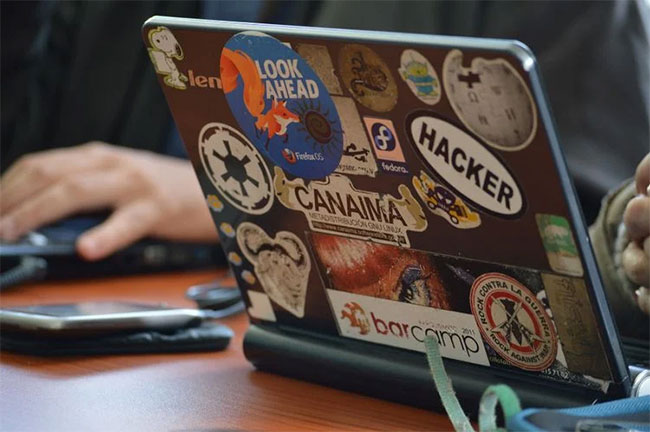Are the game consoles infected with viruses?
Everyone knows about the various dangers that are hidden on the Internet. People get warnings about visiting shady websites or clicking on suspicious links. Malware and viruses are a major threat to web surfing. We often think of vulnerable devices like computers or smartphones, forgetting that these are not the only things that access the web.
Modern game consoles have the online services users use. Technically, anything online can fall victim to the virus. So is the game console virus infected? Along TipsMake find the answer through the following article offline!
Can the game console be infected with a virus?

The short answer is yes, the game console is also a vulnerable device. Anything that accesses the Internet is likely to be infected with malware. However, the virus that attacks your computer is not the one that affects the console.
Viruses require encryption compatible with the operating system (OS). Each game console has its own specific operating system. In other words, Nintendo Switch, Xbox One / Series X and PlayStation 4/5 all run on different operating systems.
If a hacker targets the console, he will need to write code specific to each console. There are several different viruses that can infect console if you are not careful. Of course, these viruses are relatively rare compared to the amount of malware your computer encounters.
Why are console viruses so rare?

Creating a console virus doesn't bring much benefit. Hackers tend to want to infect devices so they can get something from you. Think of all the sensitive information you upload online (bank information, contacts, social security numbers, IDs, etc.). If hackers are unable to retrieve any of the saved data from your computer, they may try to do things like create programs to track your keystrokes or force you to give up your information. .
In order for hackers to maximize the benefits of their attacks, they need to try to get as many people to download their programs as possible. To increase reach, it makes sense to target systems that many people use on a regular basis. So targeting a computer operating system makes much more sense.
Game consoles may be popular, but their audience cannot be compared with the number of people who own and use computers regularly. There have been significant differences between the computer systems partly due to their popularity (Macs are less prone to malware because there are more Windows computers).
Even ignoring the number of users per device, game consoles cannot become a platform worth targeting. Normally, you don't enter all of the sensitive information with this device like you would with your phone or computer. Buying digital games can't compare to the amount of online shopping and banking someone makes from their laptop.
Also, the console never really needs any personal information other than some payment details. If a hacker is trying to steal your identity or get a social security card number, it makes perfect sense for them to target other platforms. This doesn't mean that a console infected with a virus never happens. It's possible for malware to target game consoles, but you'll probably never encounter them.
The chances that a hacker spends time and resources creating a virus for the platform with limited benefit is zero. This doesn't mean you won't be fooled by the game console. There are other ways that hackers can use platforms to exploit you.
Viruses are not the only way scammers get to your sensitive information. Catphishing schemes are a common scam on gaming platforms, especially in forums. Bad guys try to deceive people through malicious links and phishing techniques. Remember to always practice safety measures when using the Internet, even when playing online games.
How can I keep game consoles safe?

Internet safety measures are the key to keeping all devices healthy and free from viruses. Consider the following basic tips:
- Never accept strange friend invitations. Bots are not uncommon in online gaming forums. Anyone using PlayStation Network may encounter a friend request from a fake account. Don't add people you don't know on any social media sites.
- Never click suspicious links. If you decide to open their messages, never click on the link strangers send you. They may contain viruses.
- Does not provide personal information to people online. Although this has little to do with viruses, it is an important and basic Internet safety measure. Never give strangers your last name, address or other sensitive information.
- Don't share login details. This is especially true for any credentials. Always keep your sign-in information private - even from your friends. Your details about everything from banking information to your Nintendo Online account should be private.
Be wary of people who ask for your account information. Never trust people who say you need your credentials to claim something online. These scams will entice players to hand over their accounts. Even if you can get your account back, but later on, bad guys can sometimes steal the rewards account in the game and then sell for real money.
Keep the system up to date. The console's custom operating system has no protection. While the potential threat is minimal, gaming systems still have security measures. While there have been no reports of potentially harmful viruses, you should still keep your account up to date in case they take any security measures up.